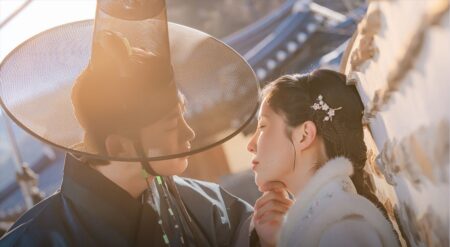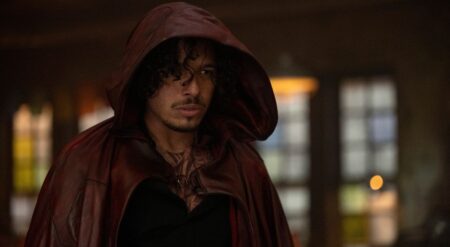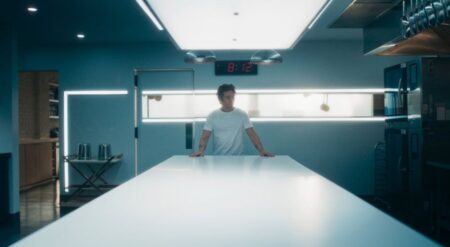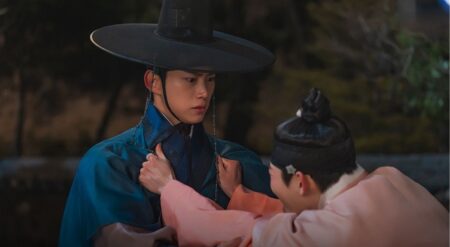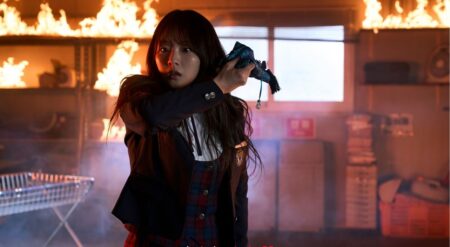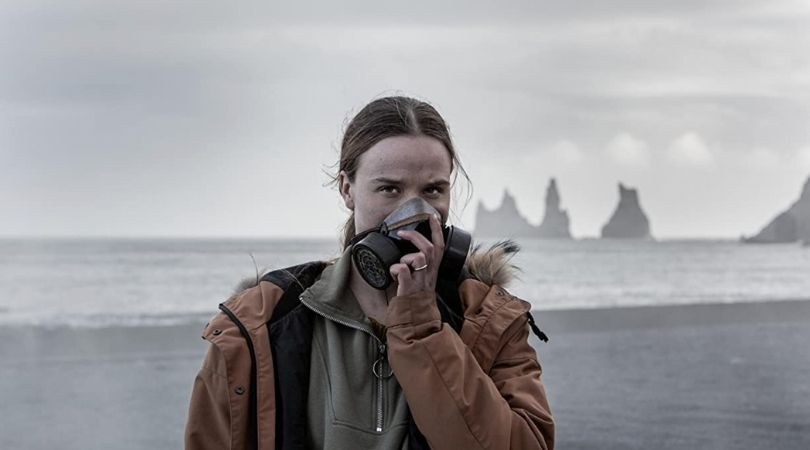
Volcanoes are an astonishing culmination of geological outcomes. They are both wildly destructive, yet a wonder to behold. Nothing can stand in their path. Yet they cause far more havoc than simply spewing volcanic rock and lava. One site, the home of Katla, is an active volcano located beneath a glacier in southern Iceland, which itself is an island in the North Atlantic Ocean. While the volcano hasn’t erupted there for many years, it is the site for the Netflix Original series of the same name, Katla.
Created, and partly directed by Baltasar Kormákur, starring Guðrún Ýr Eyfjörð as Gríma, Ingvar Sigurdsson as Þór, Aliette Opheim as Gunhild, Þorsteinn Bachmann as Gísli, and Björn Thors as Darri. Katla tells the story of a town dealing with an active volcano during a long-lasting eruption, as ash and smoke billow from the underground mass. The town, almost a year on, is buried under black dust as the majority of people from the surrounding area have abandoned their houses in order to find a new place to live until things settle down. The problem is though, the volcano has un-lodged more than just the local residents, as a young woman is found wandering the highlands covered in volcanic ash. She explains who she is, and where she’s from; however, it turns out she’s not from this time at all. In fact her last memories were of the 1970s.
Things escalate from there, as slowly, other people are found, some of whom were thought to have died, and some who definitely did. The mystery grows deeper, as the remaining townspeople can’t quite fathom what they’re seeing, until the cracks start showing, and things aren’t what they appear to be at all.
Katla is a property that had me torn. As with many series on Netflix, this show takes its bloody time getting to the heart of the story. While character arcs and plot development are important, this one just takes the cake. The pace is deliberately measured to serve as the foundation for the characters’ development, but the series is one or two episodes too long and tries to serve too many characters. It’s not to say the story wasn’t great, but at times, they feel like they’ve flogged this horse to death. I was all but ready to give up on the show partway through episode 3.
Plot twist: it gets so much better after this, and the build-up to the ending is superb and resurrects the value of this show entirely. Once you lunge into episode four and beyond, that’s when the story picks up the cadence and gets into the meat of things. The tension significantly increases, as more and more people show up from the bowels of the volcano. What I loved about this aspect was that as these ash-covered people are introduced it rapidly changes the dynamic of the townspeople. Some are over joyous, where others live in fear of the implications of their return. It’s difficult not to go further into talking about this because it really hinges on spoiler territory.
Katla does a fantastic job of melding history, local legend, and science into one neat package. It also addresses a lot of the early mysteries by its conclusion through the experiences of the characters themselves. While some conclude in better places than others, each of the impacted townsfolk has incredibly hard-hitting psychological and emotional endings. The philosophical scenarios that are presented are absolutely brilliant talking points and are cleverly designed to force the characters into impossible situations. The two that hit me the hardest were the experiences of Darri and Gríma.
The performances of the cast are led by the example of Eyfjörð who played Gríma. She has seen an immense amount of trauma, which underpins her whole journey in the story of Katla. As her arc moves forward and concludes, it was easily one of the most impactful and tense points throughout the whole series. I’m still reeling from the finale episode.
The scenery is like nothing else I’ve seen, as you are taken on a journey throughout southern Iceland. What really struck me was the presentation of the characters dealing with the volcano as their normalcy, while for the viewer, it looks heavily reminiscent of a post-apocalyptic world that has suffered a global tragedy.
Overall, while Katla struggles to find its direction in the beginning of the show, once it gets going, it’s an incredibly intense and psychological mystery. The conclusion leaves you weighing multiple traumas and asks some impossibly heavy philosophical questions of right and wrong. Power through the first three episodes and you’ll find a gem of a show.
Katla is available now, exclusively on Netflix.
Katla
-
Rating - 7/107/10
TL;DR
Katla struggles to find its direction in the beginning of the show, once it gets going, it’s an incredibly intense and psychological mystery. The conclusion leaves you weighing multiple traumas and asks some impossibly heavy philosophical questions of right and wrong. Power through the first three episodes and you’ll find a gem of a show.

